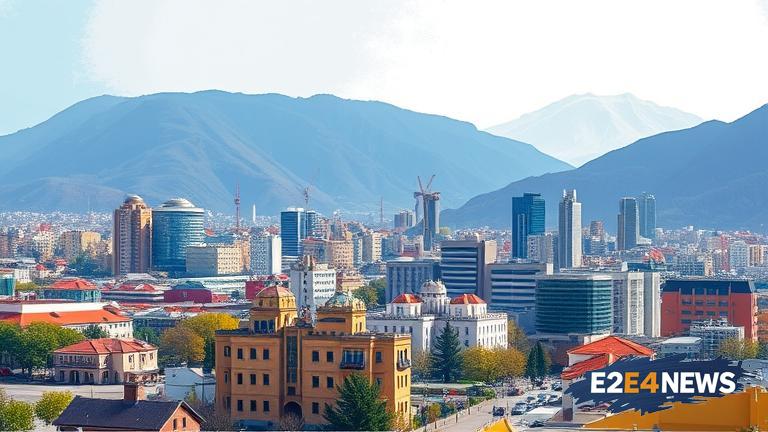Azerbaijan’s economy has been undergoing significant transformations in recent years, with a notable shift towards diversification. The non-oil sector has been a major driver of this growth, with investments in infrastructure, tourism, and agriculture. According to recent reports, the country’s non-oil sector has seen a substantial increase in production, with a growth rate of over 10%. This is a significant improvement from previous years, where the sector had experienced a decline. The growth in the non-oil sector can be attributed to the government’s efforts to diversify the economy and reduce dependence on oil exports. The government has implemented various policies and initiatives to promote the development of non-oil sectors, including investments in infrastructure, such as roads, bridges, and transportation systems. Additionally, the government has also invested in the tourism sector, with the development of new hotels, resorts, and tourist attractions. The tourism sector has seen a significant increase in visitor numbers, with a growth rate of over 20%. The growth in tourism has also had a positive impact on the country’s economy, with an increase in revenue from tourism-related activities. Furthermore, the government has also invested in the agricultural sector, with the development of new farms, irrigation systems, and agricultural infrastructure. The agricultural sector has seen a significant increase in production, with a growth rate of over 15%. The growth in the agricultural sector has also had a positive impact on the country’s food security, with an increase in the production of staple crops such as wheat, corn, and soybeans. Moreover, the government has also invested in the development of small and medium-sized enterprises (SMEs), with the provision of financing, training, and other support services. The growth in the SME sector has also had a positive impact on the country’s economy, with an increase in employment opportunities and revenue. The government’s efforts to diversify the economy have also been supported by international organizations, such as the World Bank and the International Monetary Fund (IMF). These organizations have provided financing and technical assistance to support the development of non-oil sectors. In addition, the government has also established trade relationships with other countries, with the signing of trade agreements and memoranda of understanding. These trade relationships have also had a positive impact on the country’s economy, with an increase in trade volumes and revenue. Overall, the growth in Azerbaijan’s non-oil sector is a positive development for the country’s economy, and is expected to continue in the coming years. The government’s efforts to diversify the economy and promote the development of non-oil sectors are expected to have a long-term positive impact on the country’s economy. The growth in the non-oil sector is also expected to have a positive impact on the country’s GDP, with an increase in revenue and employment opportunities. Furthermore, the growth in the non-oil sector is also expected to have a positive impact on the country’s trade balance, with an increase in exports and a reduction in imports. In conclusion, the growth in Azerbaijan’s non-oil sector is a significant development for the country’s economy, and is expected to continue in the coming years. The government’s efforts to diversify the economy and promote the development of non-oil sectors are expected to have a long-term positive impact on the country’s economy.
